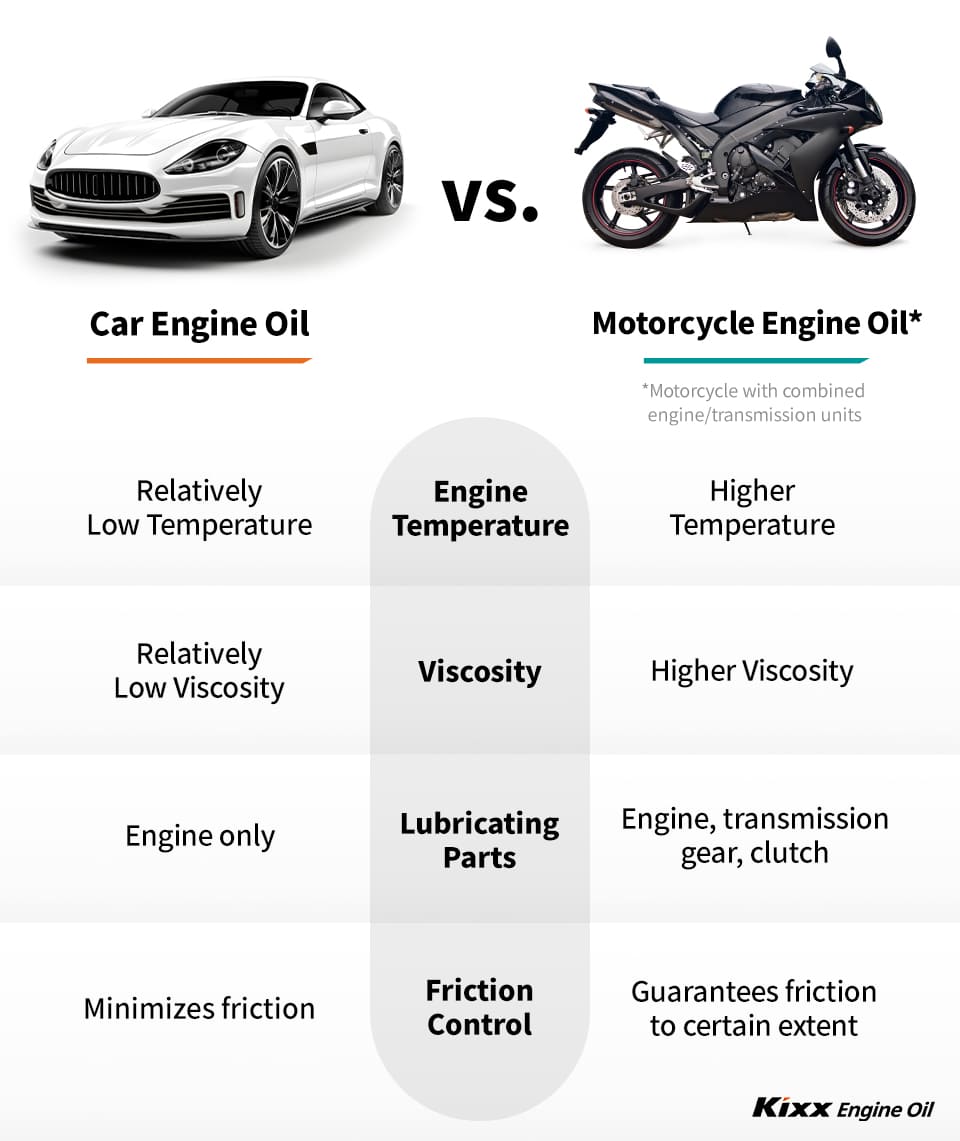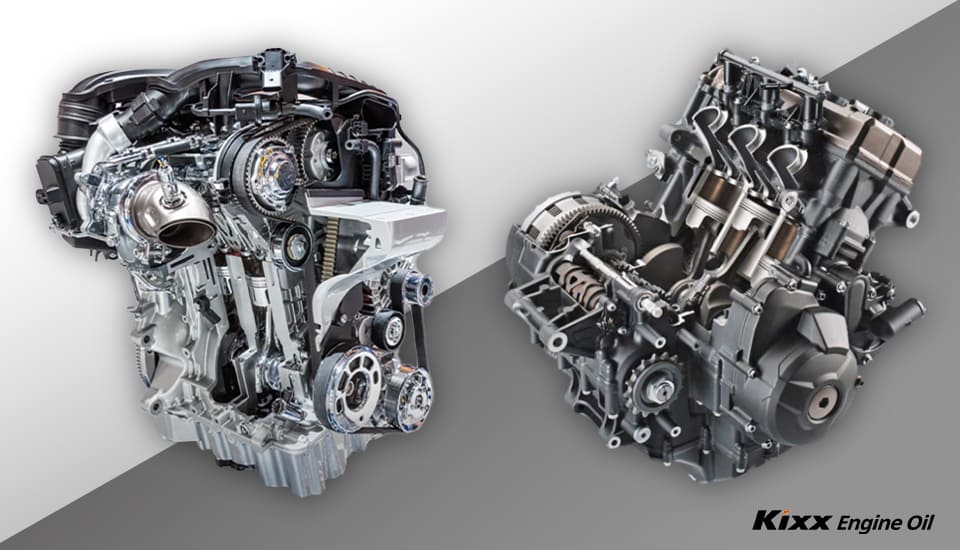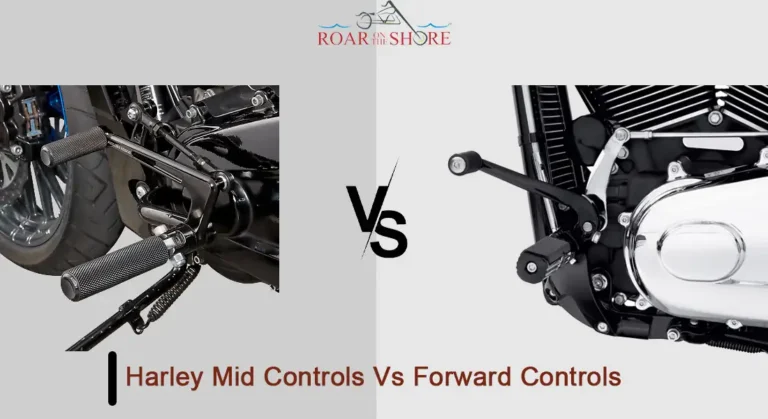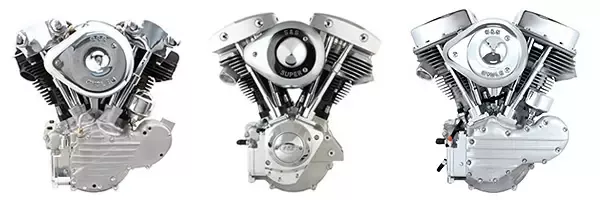Motorcycle engine oil and car engine oil differ in their formulation and additives. Motor oils for motorcycles address the specific needs of bike engines, which often share the oil with the transmission and clutch.
Motorcycle engines operate at higher RPMs and under more stress compared to car engines, demanding an oil that can handle increased shear resistance and provide a stable lubricating film. While both oils aim to protect and lubricate, the motorcycle-specific oils are designed to work with the motorcycle’s integrated gearbox, something that car oils are not formulated to do.
This integration in motorcycles can cause car oils to break down faster and fail to provide the necessary protection, leading to increased wear and potential engine damage. Precisely engineered for these conditions, motorcycle oils often contain additives like friction modifiers to facilitate smooth clutch engagement and optimize gearbox performance. By choosing the right type of oil, bike enthusiasts can ensure their engines run smoothly and last longer, affirming the importance of understanding the distinct requirements of motorcycle engine oils.

Credit: news.kixxoil.com
Introduction To Engine Oils
Think of engine oil as the lifeblood of vehicles. It’s a crucial component for the smooth operation of both motorcycle and car engines. Understanding the differences between motorcycle engine oil and car engine oil can optimize a vehicle’s performance and longevity. This post dives into the essentials, exploring the fundamentals, history, and significance of engine lubricants in vehicular performance.
Understanding Engine Oil Fundamentals
Engine oils are complex fluids designed specifically for motor lubrication. They reduce wear, minimize friction, and help maintain engine cleanliness. Different engines require different oil properties based on their design, operating conditions, and manufacturer specifications.
- Viscosity ratings determine an oil’s thickness at various temperatures.
- Additives in oil protect against corrosion, improve seal performance, and clean the engine.
- Synthetic oils offer superior performance in extreme conditions compared to conventional oils.
History And Evolution Of Engine Lubricants
Engine oils have evolved significantly from their early days. Initially, simple oils were used to reduce friction, but they offered limited protection.
| Time Period | Engine Oil Development |
|---|---|
| 1900s | Standard oils with minimal refinement |
| 1950s | Introduction of additives |
| 1970s | Development of multigrade oils |
| 2000s | Advances in synthetic lubricant technology |
Today’s lubricants are a result of rigorous scientific research, offering tailored benefits for specific engine types.
Significance Of Engine Oil In Vehicle Performance
The right engine oil plays a crucial role in vehicle performance. It directly impacts the efficiency and lifespan of an engine.
- Provides a protective layer to reduce engine wear.
- Helps in dissipating heat to prevent overheating.
- Ensures smoother and quieter engine operation.
Motorcycle and car engines have different needs, and selecting the appropriate oil can lead to better fuel economy, enhanced power output, and reduced maintenance costs.
Stay tuned as we delve deeper into the particulars that distinguish motorcycle engine oil from car engine oil, guiding you towards the right choice for your vehicle.
Distinguishing Motorcycle And Car Engine Oils
Understanding the differences between motorcycle and car engine oils is crucial. These oils cater to diverse needs. Engines have varying designs, operational stresses, and lubrication requirements. Exploring the distinctions tells us why using the right oil is non-negotiable for vehicle performance and longevity.
The Basic Chemical Composition Variance
Motorcycle and car engine oils start with different base oils. Car oils often require friction modifiers to improve fuel economy. These modifiers can be problematic for motorcycles, especially those with wet clutches, leading to slippage. Conversely, motorcycle oils have higher phosphorus levels to prevent wear on gears and clutches that are absent in cars.
Viscosity Grades And Their Impact On Performance
Engine oils come with viscosity ratings such as 10W-40 or 5W-30. This measure shows how well the oil flows at different temperatures. Motorcycles often operate at higher temperatures and need oils that maintain viscosity under stress, ensuring engine protection and peak performance. Lower viscosity car oils might not provide this same protection for motorcycles.
Additive Packages Tailored For Motorcycles And Cars
- Motorcycle oils often contain additives designed for the high shear environment within a motorcycle engine.
- Car oils may include detergents and dispersants in higher quantities to handle increased contaminants.
Additives in motorcycle oils often focus on protecting gears, clutches, and engines that share the same oil. Car-specific additives might not offer the necessary protection for motorcycle parts.
Unique Demands Of Motorcycle Engines
Motorcycle engines work hard and they need oil that keeps up. These engines have special needs quite different from car engines. Riders know that the right oil means a smoother ride and a longer-lasting engine.
Higher Revolutions Per Minute (rpm) And Their Effects On Oil
Motorcycles hit high RPMs fast. This puts stress on engine oil. The oil needs to handle the heat and keep protecting the engine.
- High RPM means more heat.
- Oil must not break down.
- Strong oil keeps engine parts safe.
Motorcycle Gearbox Oil Integration And Its Requirements
A motorcycle’s gearbox shares oil with the engine. This makes it crucial to use oil that’s made for both parts.
| Motorcycle Oil | Requirements |
|---|---|
| Viscosity | Must suit engine and gearbox. |
| Additives | Helps gears shift smoothly. |
| Wear Protection | Gears and engine stay safe. |
The Impact Of Wet Clutches On Motorcycle Engine Oil Formulation
Motorcycles often have wet clutches, clutch parts that bathe in oil. Clutch and oil must work together.
- Oil must not be too slippery for clutches.
- Oil helps clutches grab without slip.
- Right oil equals smooth gear changes.

Credit: www.youtube.com
Distinctive Requirements Of Car Engines
When it comes to engine performance, car engines have specific needs. Understanding these can ensure optimal functionality and longevity. Right oil selection can make a real difference. Car engines typically run at a constant, high speed and demand oil that can cope with such operations. Additionally, they house an array of technologies such as turbochargers and catalytic converters, requiring specialized lubricants to keep them running smoothly.
Extended Oil Change Intervals And Their Importance
Cars often have a longer interval between oil changes than motorcycles. Improved oil formulations allow drivers to go longer without the need for oil changes, benefiting both the owner’s pocket and the environment. Advanced additives in car engine oils work to protect against wear, reduce deposits, and maintain engine cleanliness.
- Less frequent changes save time and money.
- Advanced additives in the oil fight wear and tear.
- Long intervals help in reducing environmental impact.
The Role Of Oil In Turbocharged Vs Naturally Aspirated Car Engines
Turbocharged engines compress air into the engine, allowing more oxygen for combustion. This boosts power and efficiency. But, it also brings more heat and stress. Engine oil in turbocharged cars needs to withstand high temperatures without breaking down.
In contrast, naturally aspirated engines draw air naturally without forced induction. The oil requirement here emphasizes stable lubrication and engine protection under normal operational stress.
- Turbo engines need oil that handles high heat.
- Naturally aspirated engines require consistent lubrication.
Catalytic Converter Compatibility With Car Engine Oils
Car engine oils are designed to be compatible with catalytic converters, which reduce exhaust emissions. Oils with high levels of certain additives can damage these converters or lessen their effectiveness. Therefore, car engine oils are formulated to minimize the potential harm to these emission control systems.
| Oil Feature | Importance |
|---|---|
| Low Phosphorus | Prevents catalytic converter damage |
| Low Ash Content | Ensures cleaner emissions |
Practical Considerations In Choosing The Right Oil
When it matters most, choosing the right oil for your vehicle is crucial. Motorcycles and cars have different needs. This section dives into what to consider when selecting engine oil.
Understanding Manufacturer Recommendations And Specifications
Vehicle manuals are gold mines for engine oil information. Manufacturers tailor recommendations to each model’s design. Both motorcycle and car engines have unique requirements. Specific oil types and viscosities are non-negotiable.
- Motorcycles often share engine and gear oil, adding complexity to their needs.
- Cars, with separate oil reservoirs, demand engine oil that caters purely to the engine itself.
Analyzing Real-world Conditions: Climate And Driving Habits
Climate affects oil performance. Extreme temperatures require oils with better viscous characteristics. Driving habits also influence the choice.
| Conditions | Motorcycle Oil Needs | Car Oil Needs |
|---|---|---|
| Hot Climates | Thicker oil, more stable at high temperatures. | Oil with good thermal breakdown resistance. |
| Cold Climates | Thinner oil, ensuring flow at low temperatures. | Low-viscosity oil, providing quick engine starts. |
| Aggressive Driving | Oil that can handle high RPMs and stress. | Durable oil that protects under hard acceleration. |
The Economic Perspective: Cost-effectiveness And Oil Longevity
Cost and longevity shape oil choice. Durable oils reduce change frequency, saving money over time.
- High-quality oils may have higher upfront costs but offer better engine protection and longer service intervals.
- Budget oils might be gentler on the wallet, but frequent changes can add up.
Motorcycle oils, facing harsher conditions, generally last shorter periods than car oils.

Credit: news.kixxoil.com
Common Myths And Misconceptions
Welcome to the world of engine lubrication. Many riders and drivers have heard various claims about engine oils. Let’s explore the truth.
Debunking The Interchangeability Myth
Myth: “Motorcycle oil works in cars and vice versa.” This is not true. Motorcycle engines have different needs. They require oils that can handle higher revs which car oils are not made for. Motorcycles also have combined engine and gearbox configurations. This requires specialized additives for proper lubrication.
Addressing Performance Enhancing Claims
Claim: “Use this oil and gain more power.” Performance gains are not that simple. High-quality oils can protect better and potentially improve efficiency. But, major performance boosts are unlikely from oil alone.
Syntthetic Vs Conventional Oils: Clearing Confusions
Conventional wisdom: “Synthetic is always better.” Not always. Synthetic oils have clear benefits like better temperature stability and longer change intervals. Yet, some engines are designed for conventional oils. Check your vehicle’s manual.
Conclusion And Best Practices
Choosing the right engine oil is vital for your vehicle’s performance and longevity. Understanding the differences between motorcycle and car engine oils can help you make informed decisions. Below, find summaries of key differences, maintenance tips, and insights on future oil technologies.
Summarizing The Essential Differences And Their Impacts
Motorcycle and car engine oils are formulated differently due to their unique operating conditions. Motorcycle engines often run at higher temperatures and have a shared lubrication system with the gearbox, increasing the demand for specific additives. Car engines generally experience less intense conditions, with separate oil reservoirs for the engine and transmission. This leads to differing compositions in viscosity and additives, geared towards each engine type’s specific needs.
Maintenance Tips For Motorcycle And Car Engines
- Regularly check oil levels and color to ensure optimal performance.
- Change oil according to manufacturer recommendations or based on usage and environmental conditions.
- Use the correct oil grade as specified for your particular vehicle model.
- Dispose of old oil responsibly, protecting the environment.
Future Trends In Engine Oil Technology And Development
The engine oil industry is constantly evolving. Innovations aim to reduce emissions, enhance engine protection, and improve fuel economy. Synthetic oils are growing in popularity due to their superior performance and longer life span. Nanotechnology is also emerging, introducing nanoparticles that could lead to even more efficient lubrication. These advancements promise to make future engine maintenance simpler and more environmentally friendly.
Frequently Asked Questions For Motorcycle Engine Oil Vs Car Engine Oil
Can You Use Car Engine Oil In A Motorcycle?
Using car engine oil in a motorcycle is not recommended. Motorcycles require specific oils that can handle higher revs and unique gearbox lubrication needs. Always use oil designed for motorcycle engines for best performance and protection.
Is 4-stroke Motorcycle Oil The Same As Car Oil?
No, 4-stroke motorcycle oil differs from car oil. Motorcycle oil often contains additives for clutch performance not required in car oil.
Why Is Motorcycle Oil So Expensive?
Motorcycle oil is expensive due to its specialized additives which protect high-revving engines and its formulation for optimal clutch performance. Demand and production levels also influence the cost.
Can You Use Regular Motor Oil In A 4 Wheeler?
Using regular motor oil in a 4-wheeler is not recommended. Always choose the oil type specified by the vehicle manufacturer to ensure optimal engine performance and longevity.
Conclusion
Choosing the right engine oil is not just about the type of vehicle. Motorcycle and car oils are formulated differently to meet specific lubrication needs. Ensure you opt for the correct oil to protect your engine and enhance performance. Regular maintenance cannot be overlooked.
Ride safe, drive safe, and maintain smart for your engine’s longevity.





